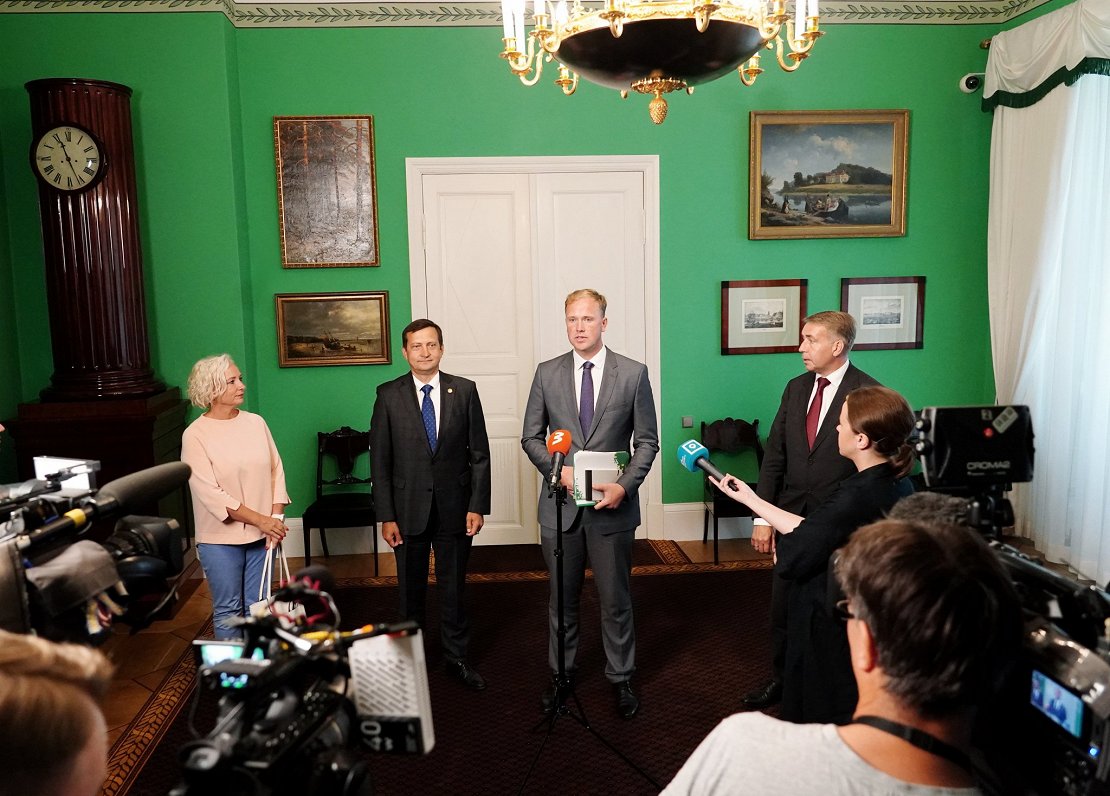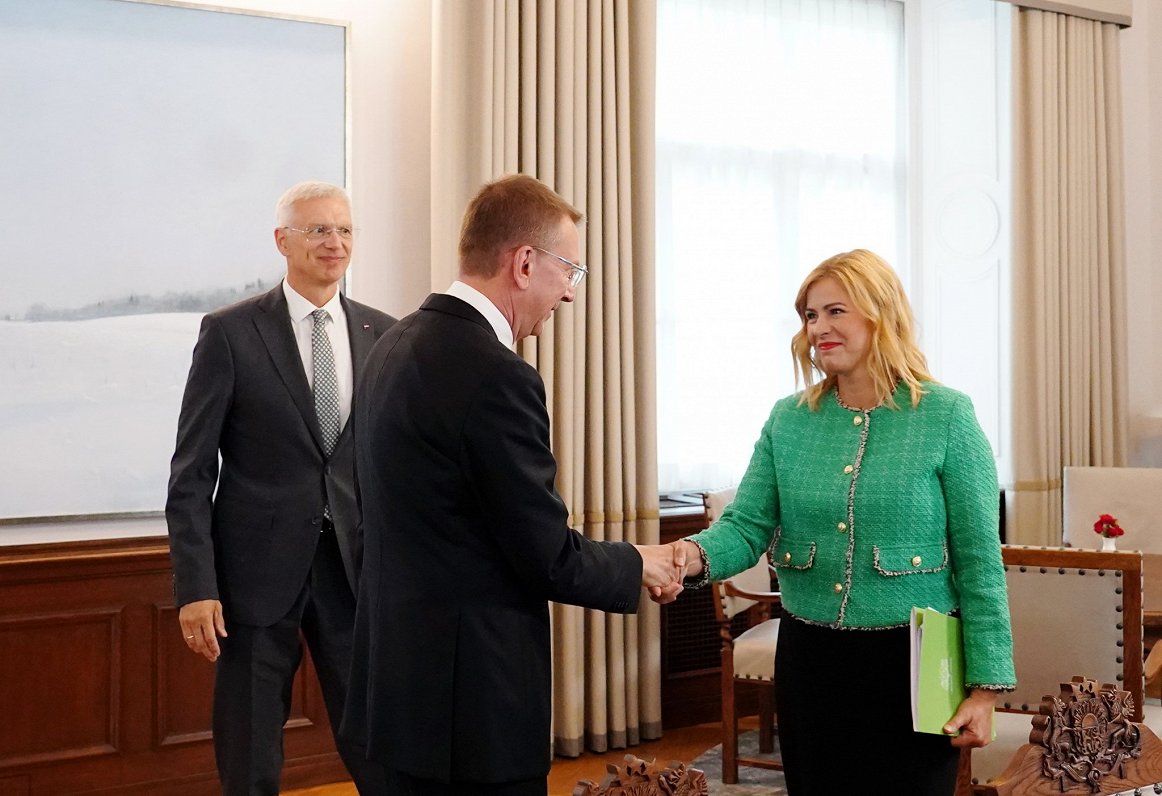President Edgars Rinkēvičs was set to insert some new urgency into the process by holding face-to-face meetings with all parties represented in the Saeima on Monday and Tuesday before announcing his potential pick for the post of Prime Minister following the resignation last week of Krišjānis Kariņš (New Unity) and his current three-party coalition – which nevertheless continues in power until a replacement administration is confirmed.
Kariņš resigned after his own attempts to "broaden" the three-party coalition into a five-party coalition were kicked into touch by his two coalition partners, the National Alliance and the United List. The coalition was formed less than one year ago. Whether they will be more amenable to change with him exiting the scene remains to be seen. There were some signs this might be the case, according to Latvian Television.
In the opinion of the Greens and Farmers Union (ZZS) – currently in opposition – the best government coalition model would be five parties, while United List is ready to talk with the President "with a blank sheet", party representatives told LTV on Monday morning.

On Monday, Rinkēvičs will meet with representatives of New Unity, ZZS and the United List to discuss the formation of a new government coalition. On Tuesday he will meet the Progressives, National Alliance, For Stability! and Latvia In First Place.
The situation is complicated by various antipathies between the different parties. The National Alliance, for example, has refused point blank to be associated with ZZS, saying that it is an oligarch-inflenced party. The United List, meanwhile, has a large cadre of members who split from ZZS in the past, and the degree of bad blood remaining is difficult to gauge. For the National Alliance and United List, the Progressives have been deemed too far to the left, particularly on social matters.
On the other hand, ZZS and the Progressives were instrumental in getting then-New Unity Foreign Minister Edgars Rinkēvičs elected as President back in May, and expect some form of concrete payback from New Unity – the largest party in parliament – for doing so.
"The more forces that agree to work together, the better it would be from the level of national security," prominent ZZS politician Viktors Valainis told LTV.
At the same time, ZZS does not see any big problems even if the coalition is formed by fewer parties. Valainis positively evaluated Evika Siliņa, the candidate for the position of prime minister nominated by New Unity.
Meanwhile, the United List said it is open to negotiations with several parties. Saeima deputy Igors Rajevs expressed that the party is ready to continue working in the government and was doing its best not to draw "red lines".
The United List would be ready to work in a government headed by Siliņa if the President nominates her for the post of Prime Minister, because "the initial meetings leave a positive impression", Rajevs said.
Several different coalition models are possible given the distribution of seats in the 100-seat Saeima, which are:
- New Unity 26
- ZZS 16
- United List 15
- National Alliance 13
- Progressives 10
- For Stability! 10
- Latvia in first place 8
- Independent deputies 2
the outgoing government coalition of New Unity, United List and National Alliance has 54 votes. A potential alternative of New Unity, ZZS and the Progressives would have 52 votes.
























